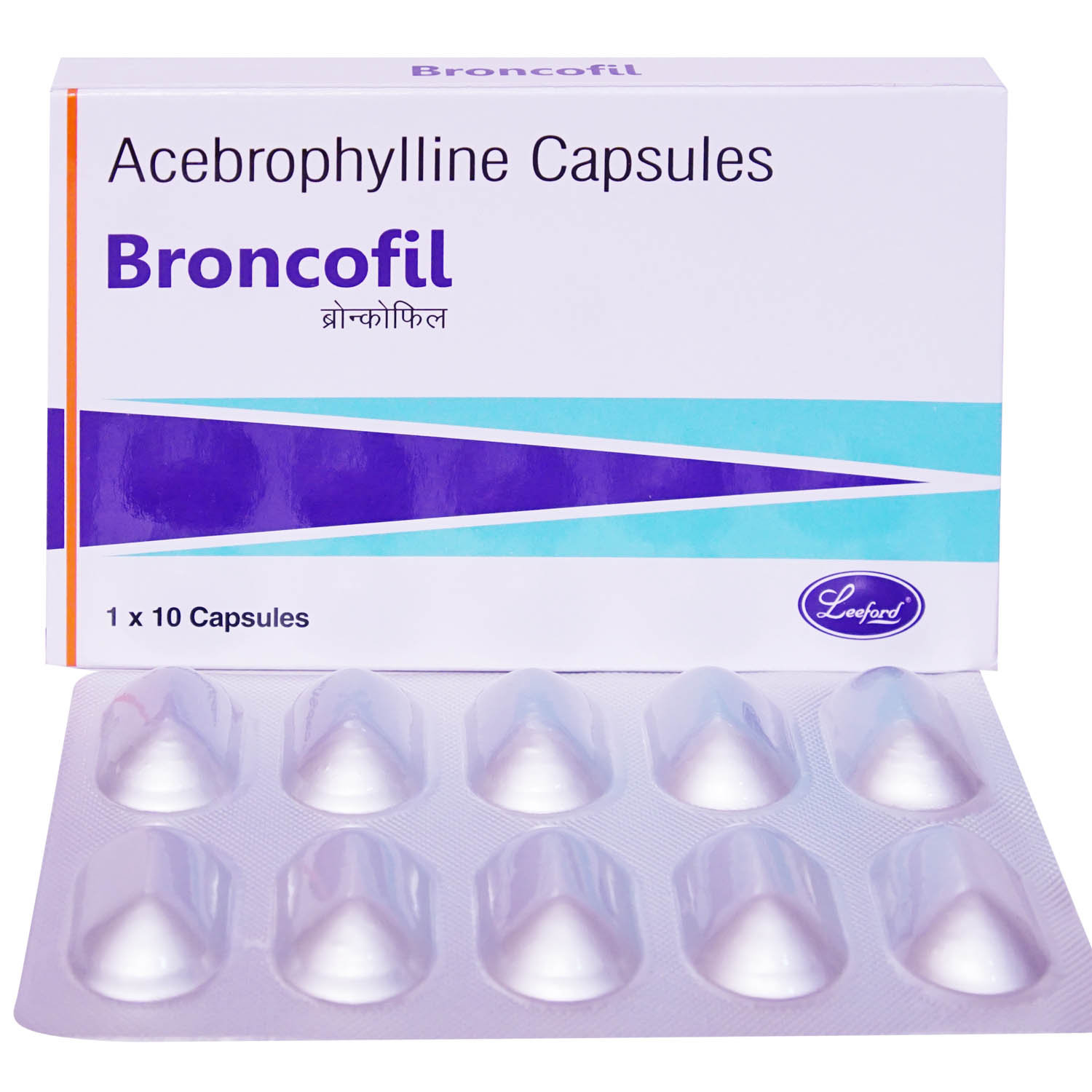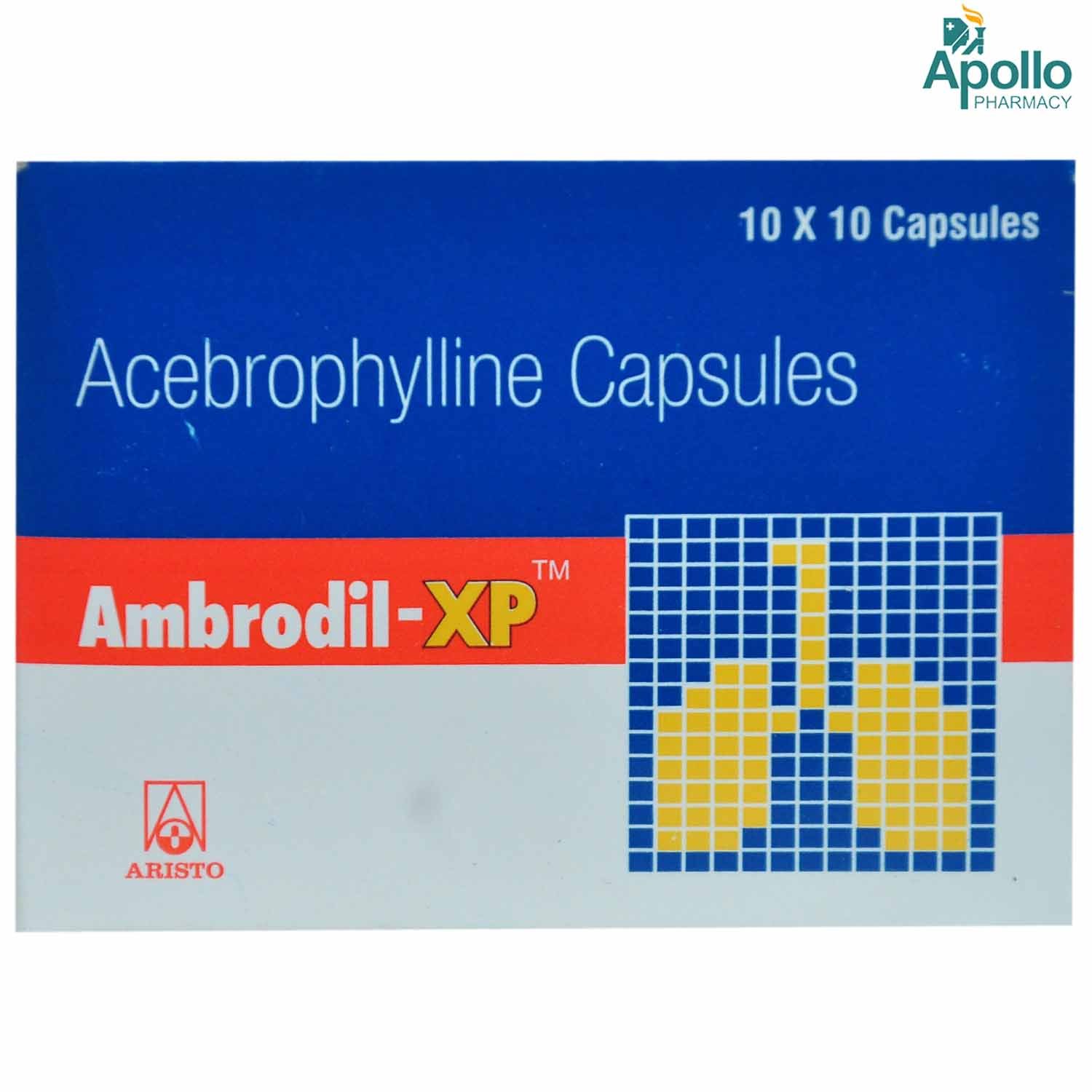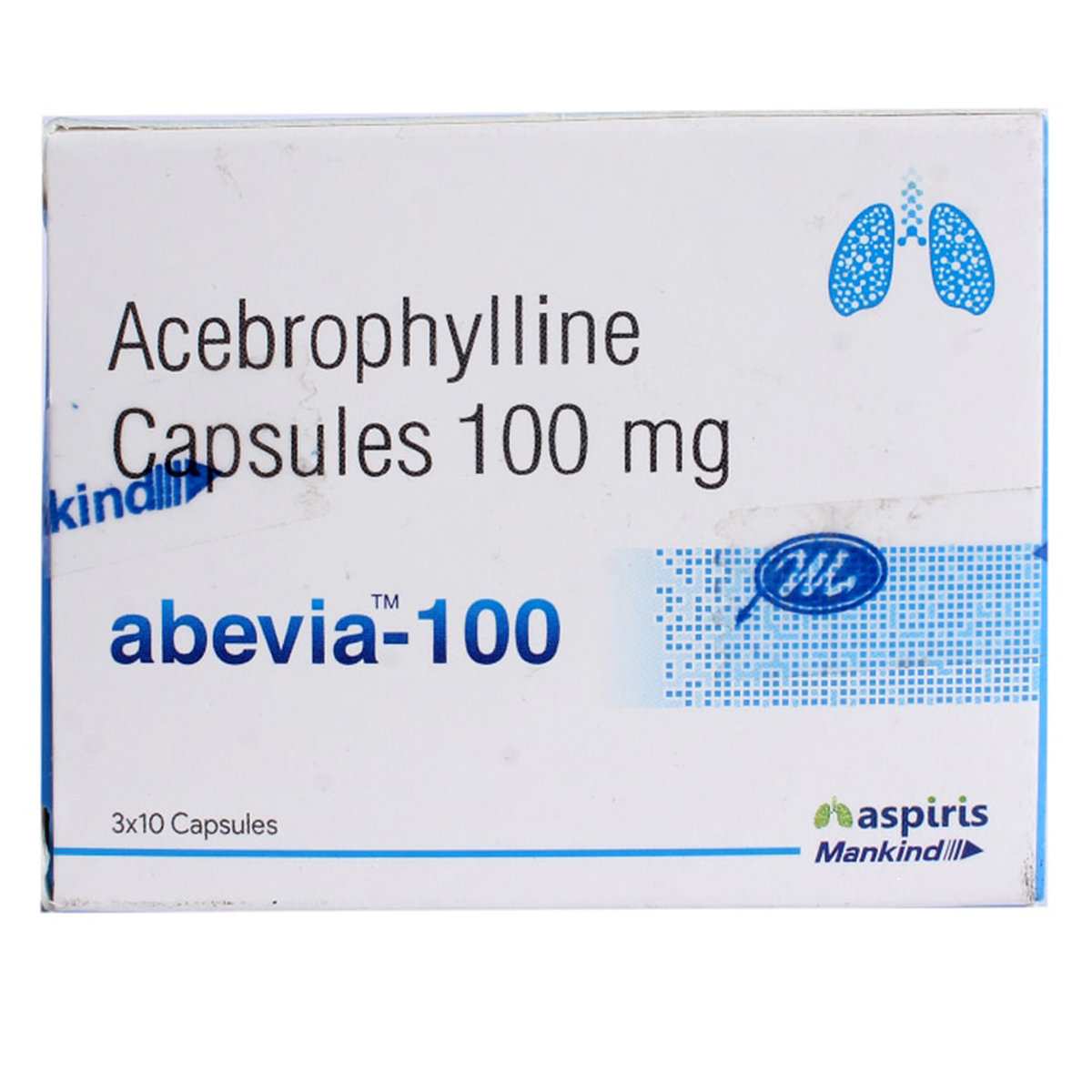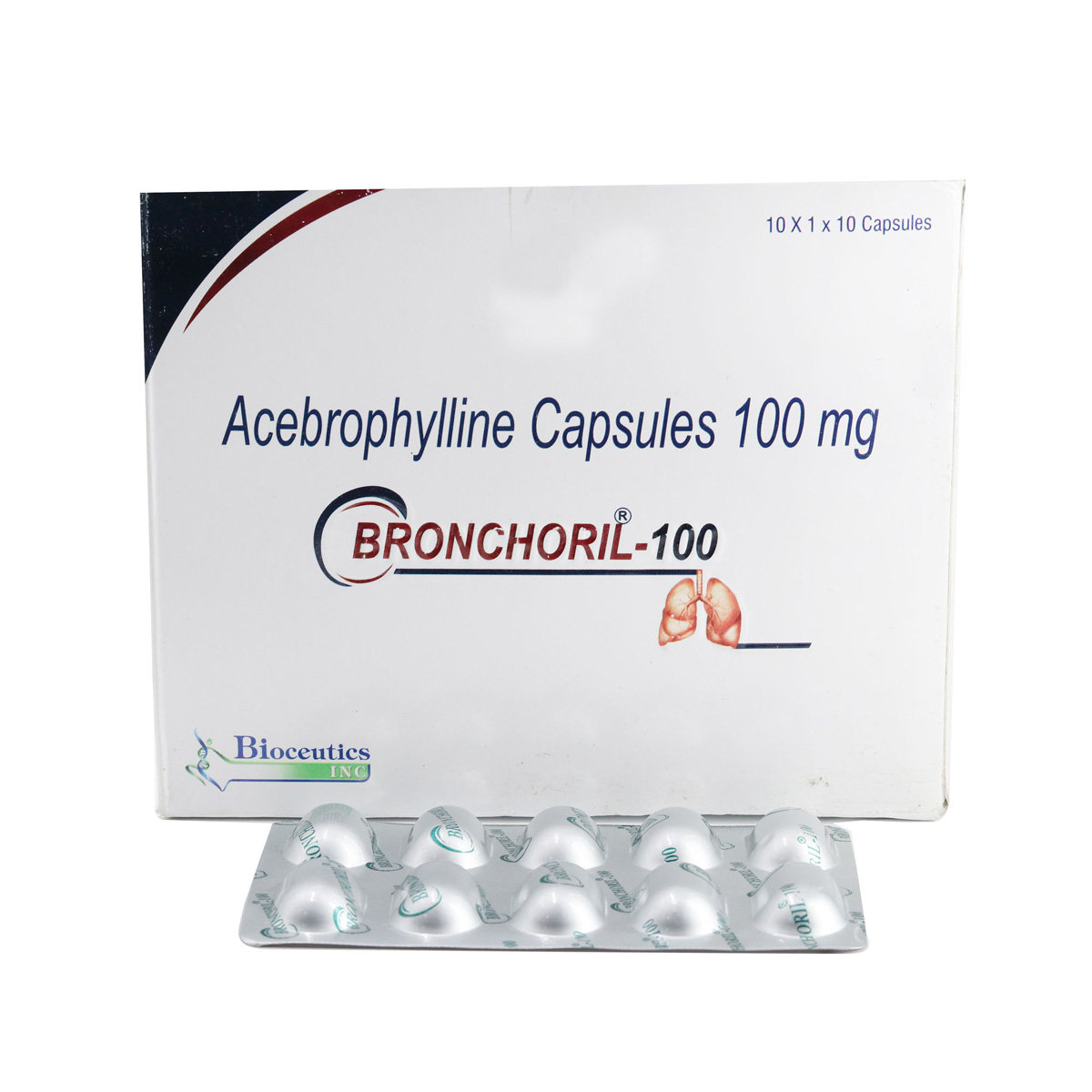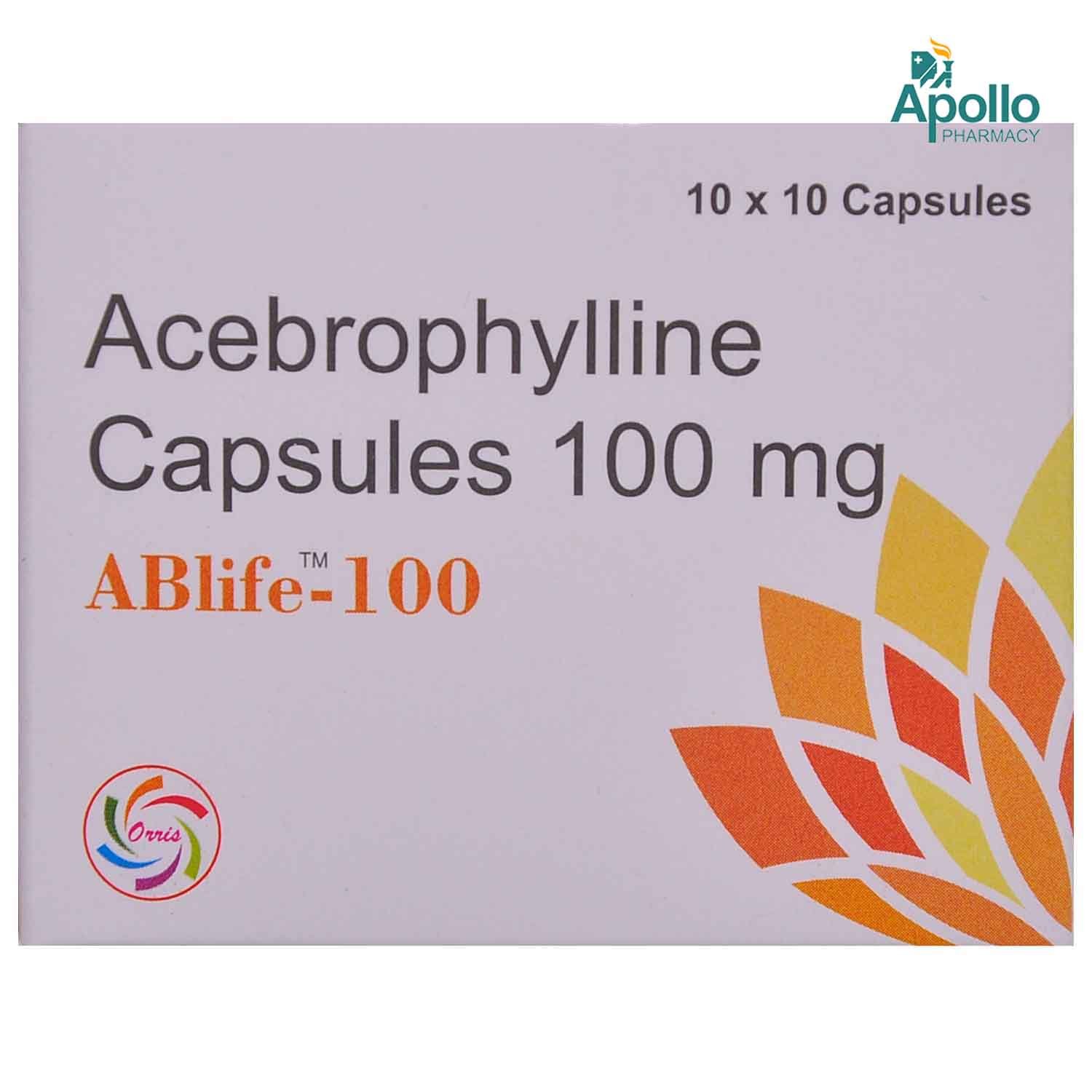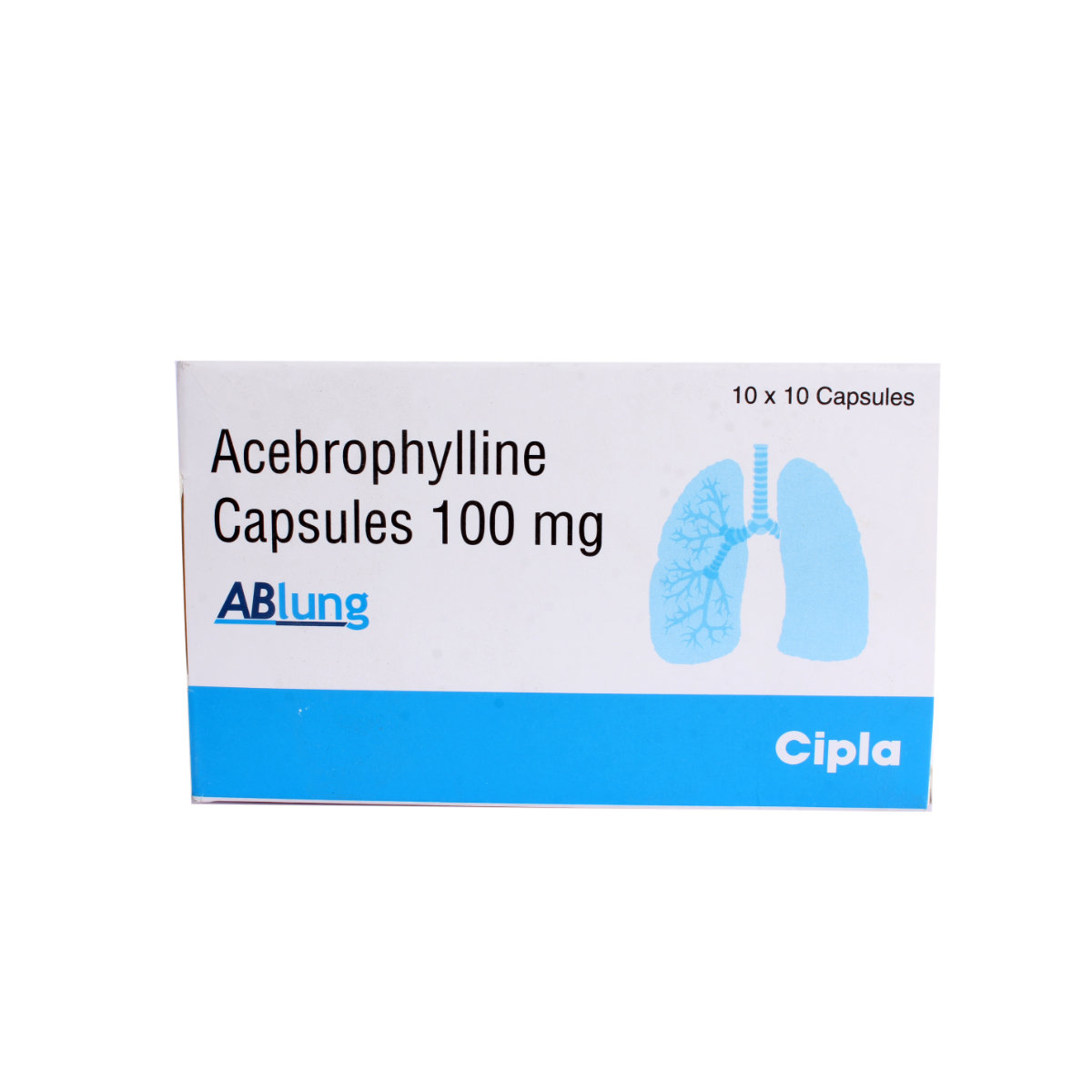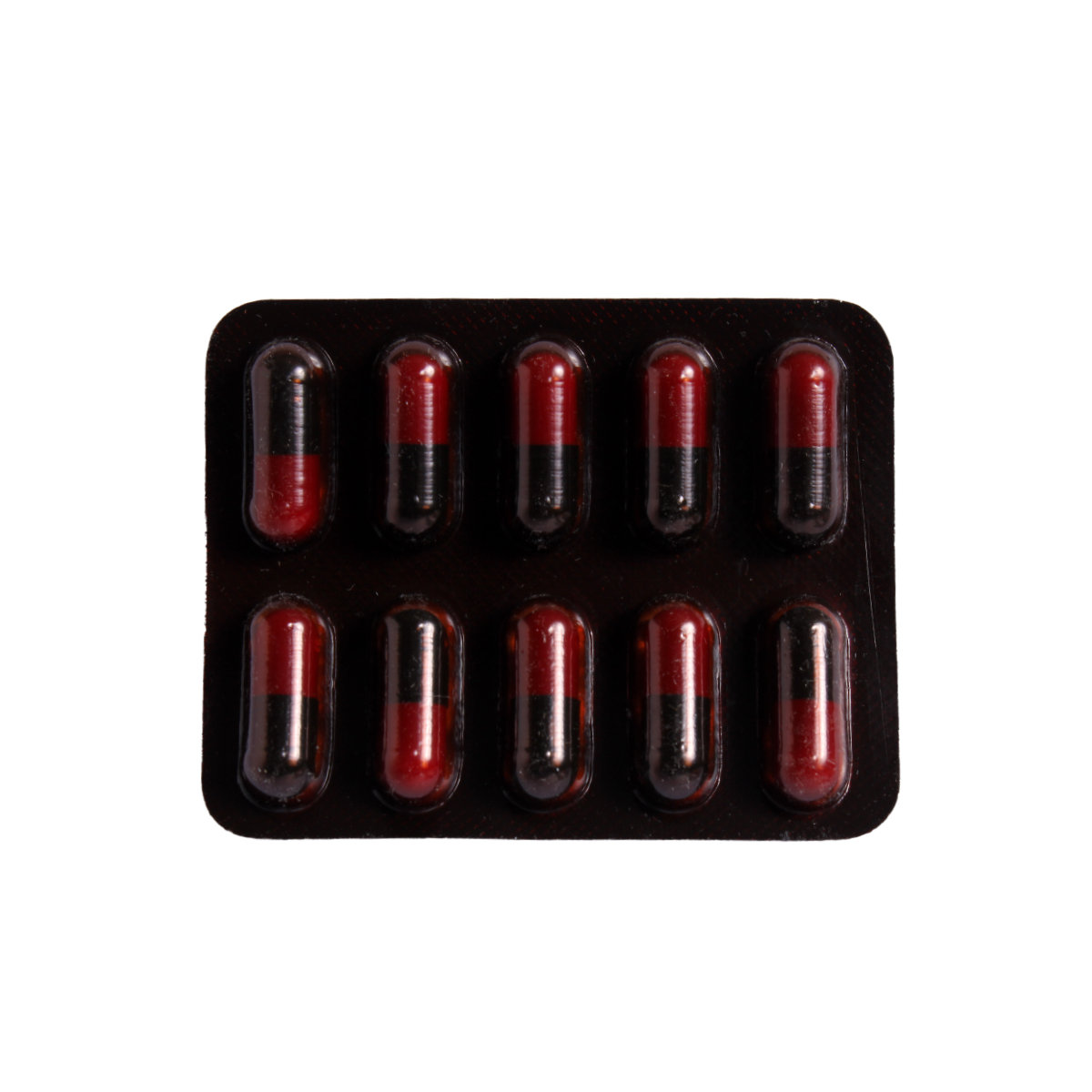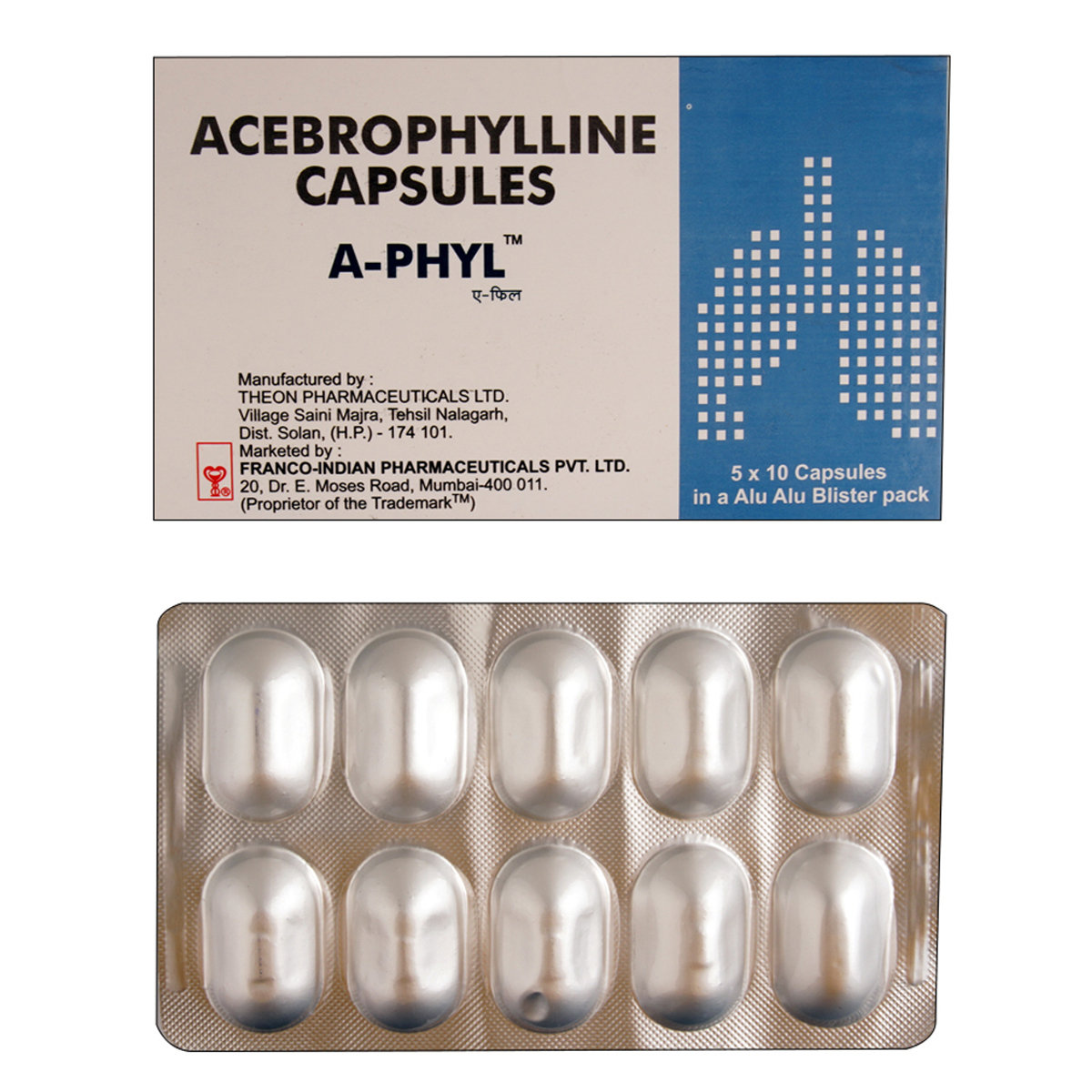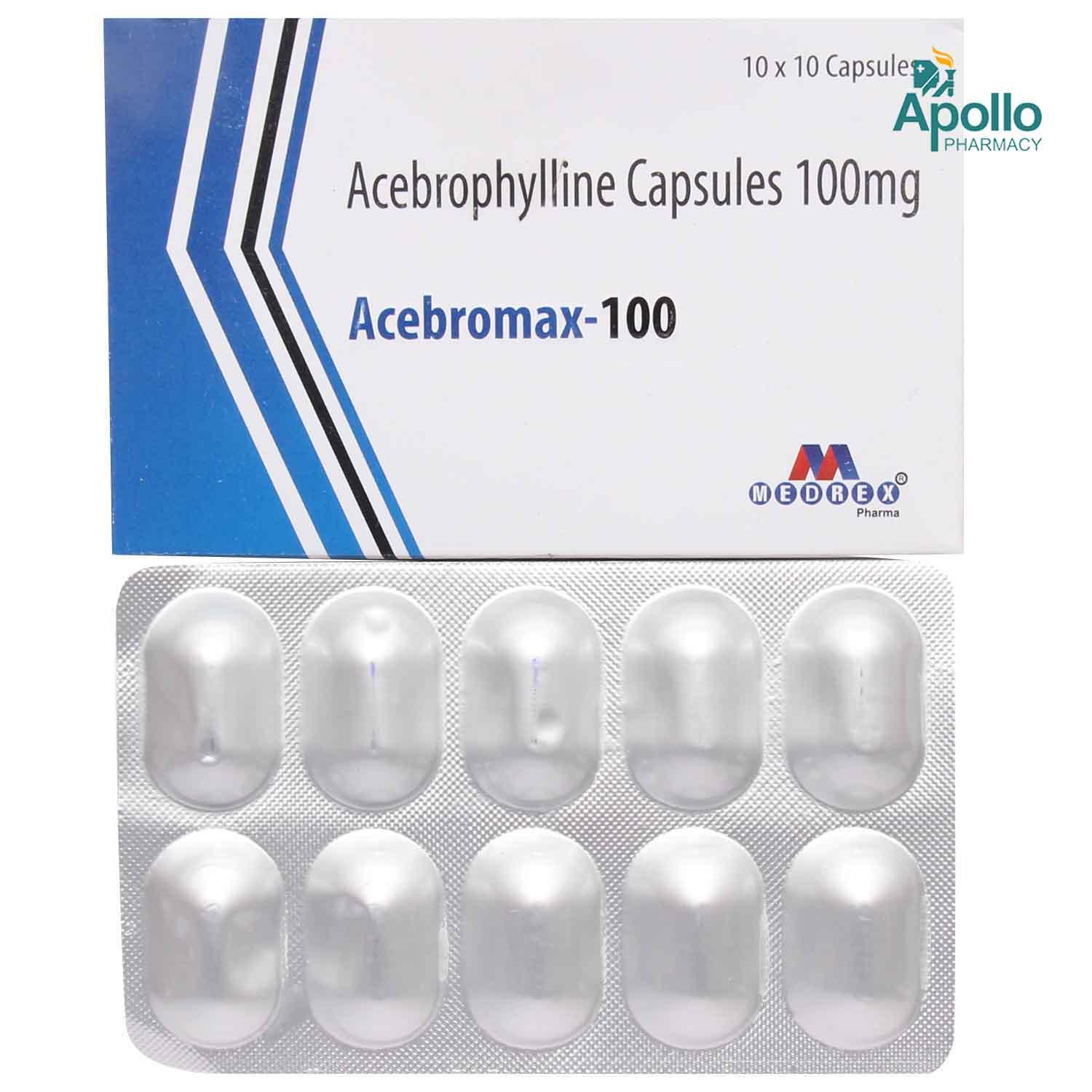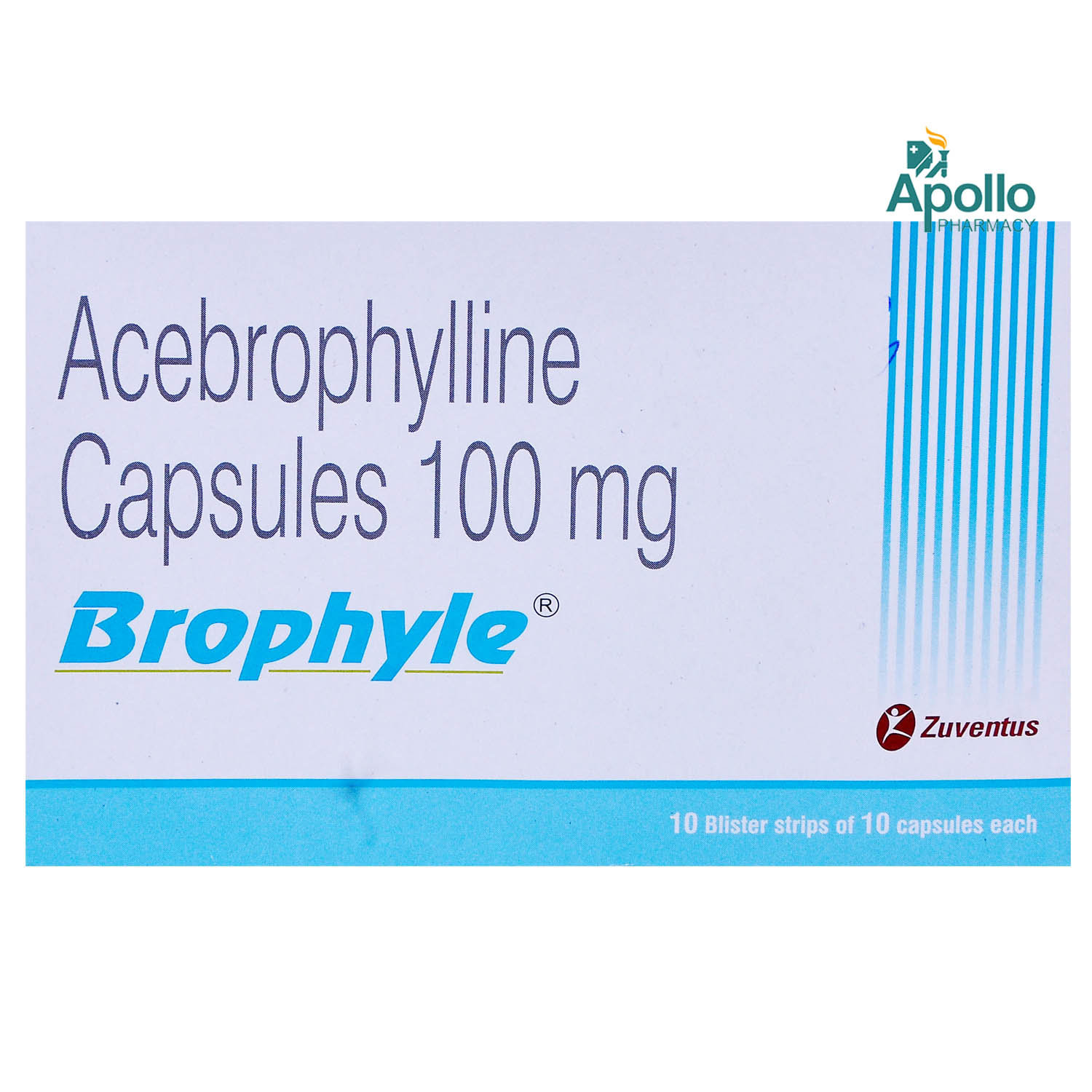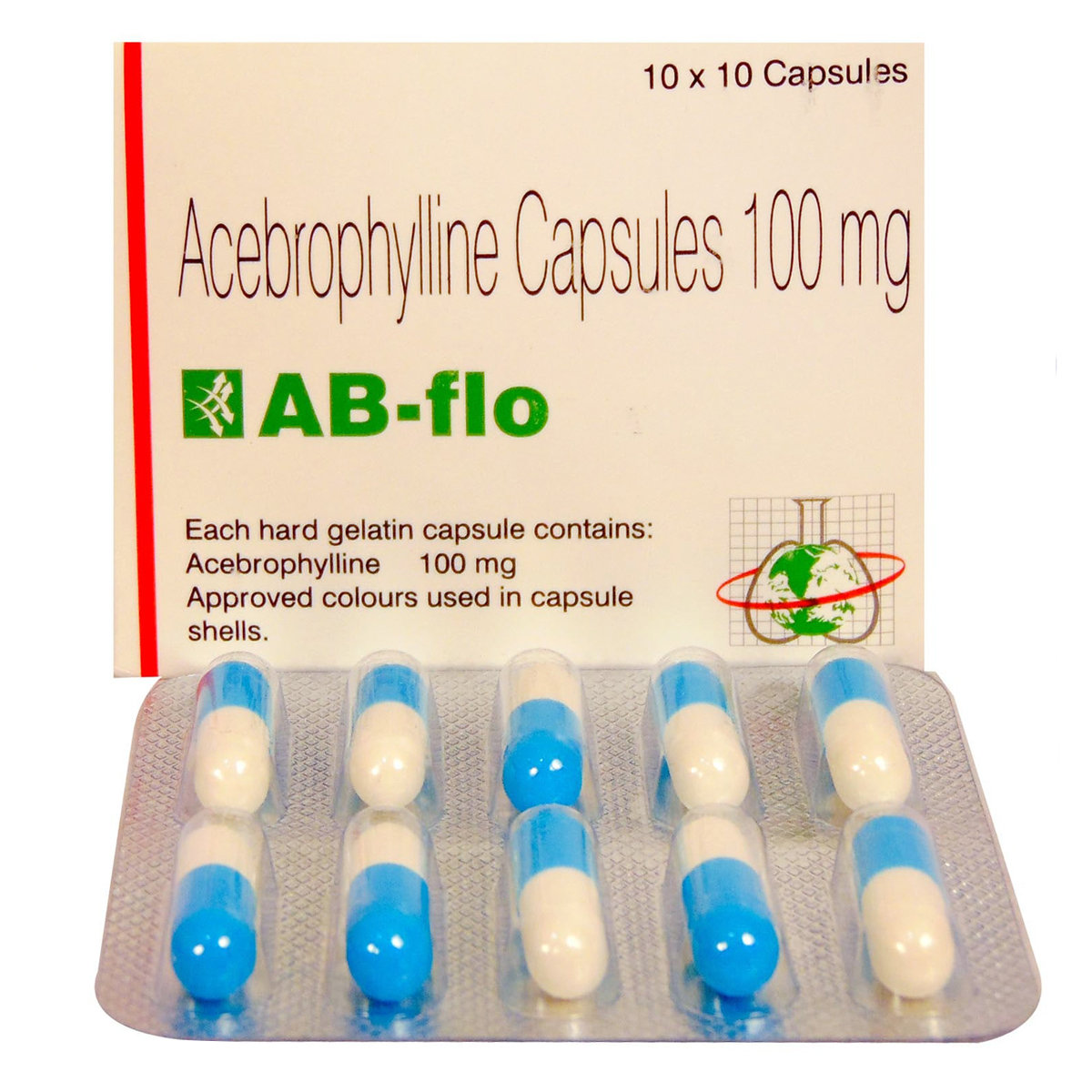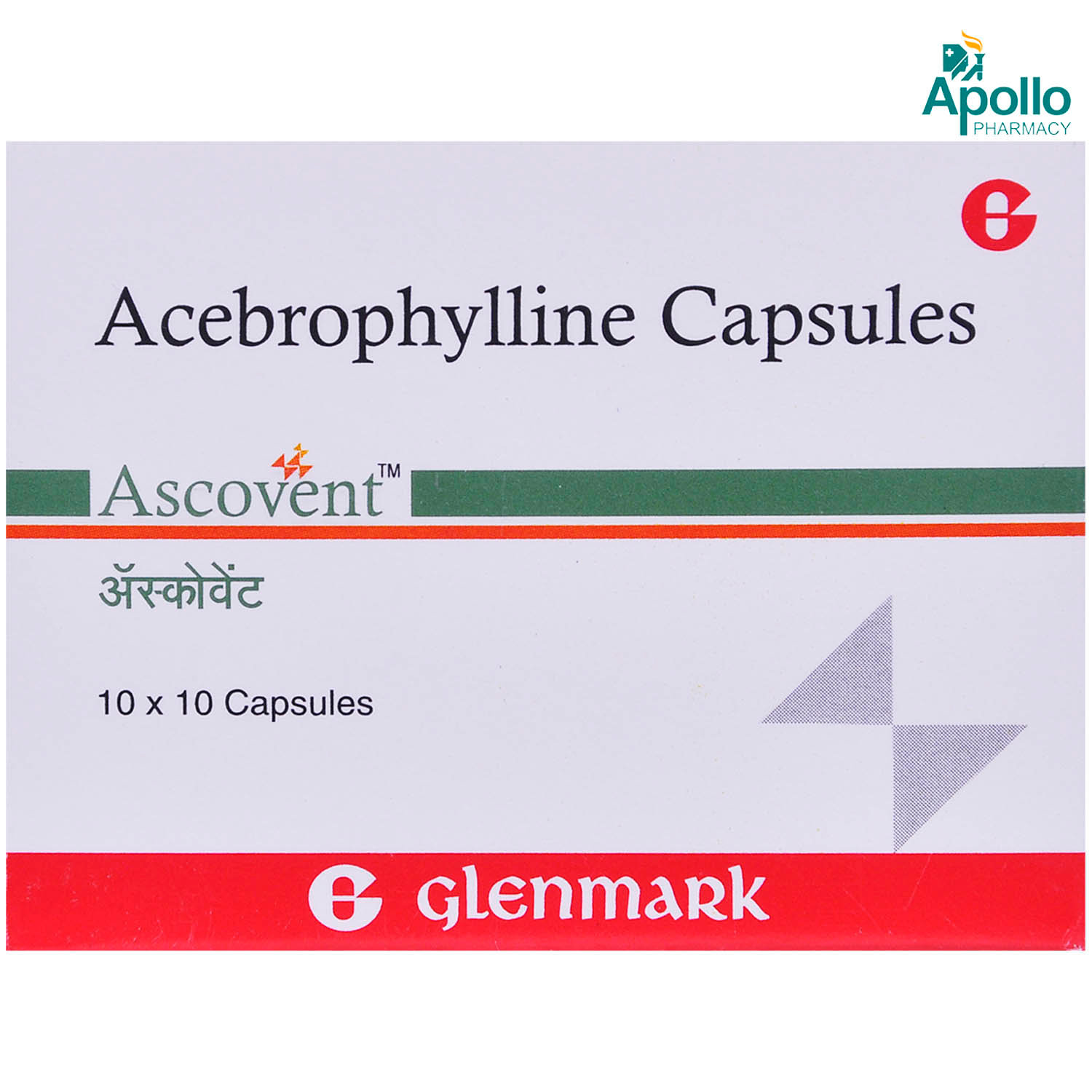SHELFYLINEA CAPSULE
MRP ₹84
(Inclusive of all Taxes)
₹12.6 Cashback (15%)
Provide Delivery Location
Online payment accepted
 Prescription drug
Prescription drugWhats That
Composition :
Manufacturer/Marketer :
Consume Type :
Expires on or after :
Return Policy :
About SHELFYLINEA CAPSULE
SHELFYLINEA CAPSULE belongs to the class of drugs called bronchodilators primarily used to prevent and treat symptoms of asthma and chronic obstructive pulmonary disease (COPD). Asthma is a chronic (long-term) respiratory condition in which airways narrow, swell, and produce extra mucus, leading to difficulty in breathing. COPD is a group of lung diseases with emphysema (shortness of breath) and chronic bronchitis (inflammation of the lining of bronchial tubes).
SHELFYLINEA CAPSULE contains Acebrophylline that works by relaxing muscles and widening the airways of the lungs. Additionally, SHELFYLINEA CAPSULE also acts as mucolytic (cough/sputum thinner) agent and helps in thinning and loosening phlegm (mucus) in lungs, windpipe and nose. Thereby, it helps to cough out easily and makes breathing easier by opening airways.
Take SHELFYLINEA CAPSULE as prescribed. Your doctor will recommend how often you take SHELFYLINEA CAPSULE based on your medical condition. Some people may experience diarrhoea, nausea, vomiting, dizziness, heartburn, stomach discomfort, skin rash or drowsiness. Most of these side effects of SHELFYLINEA CAPSULE do not require medical attention and gradually resolve over time. However, if the side effects persist or worsen, please consult your doctor.
If you are allergic to SHELFYLINEA CAPSULE or any other medicines, please tell your doctor. If your breathing worsens or you often wake up at night with asthma, experience chest tightness in the morning or lasts longer than usual, please consult a doctor immediately as these might be signs indicating that your asthma is not controlled properly and requires an alternate or additional treatment. Regular monitoring of potassium levels is recommended while taking SHELFYLINEA CAPSULE as it may cause low potassium levels in the blood. If you are pregnant or breastfeeding, it is advised to inform your doctor before using SHELFYLINEA CAPSULE. Do not take SHELFYLINEA CAPSULE if you have heart rhythm disorder that causes fast heartbeats. Avoid taking SHELFYLINEA CAPSULE if you have low blood pressure, irregular heartbeats, hemodynamic instability (unstable blood pressure), had a heart attack, kidney or liver diseases. If you have hyperthyroidism (overactive thyroid), irregular heartbeats, viral infections, heart failure, high blood pressure, fits, gastric or duodenal ulcers, heart diseases, kidney or liver insufficiency, inform your doctor before taking SHELFYLINEA CAPSULE.
Uses of SHELFYLINEA CAPSULE
Directions for Use
Key Benefits
SHELFYLINEA CAPSULE is a bronchodilator and mucolytic (mucus thinner) agent that is used to treat symptoms of asthma and chronic obstructive pulmonary diseases (COPD). SHELFYLINEA CAPSULE works by relaxing muscles and widening the airways of the lungs. Additionally, SHELFYLINEA CAPSULE helps in thinning and loosening phlegm (mucus) in lungs, windpipe and nose. Thereby, it helps to cough out easily and makes breathing easier by opening airways. SHELFYLINEA CAPSULE helps to prevent an asthma attack and exercise freely if it is taken before exercise.
Storage
- Drink water or other clear fluids.
- To prevent worsening of pain, limit intake of tea, coffee, or alcohol.
- Include bland foods like rice, toast, crackers, and rice in your diet.
- Avoid lying down immediately after eating as it may cause indigestion or heartburn.
- Avoid acidic and spicy food as it may cause indigestion.
- Eat smaller, more frequent meals.
- Eat slowly and chew your food thoroughly to help digestion.
- Eat fiber-rich foods such as fruits, whole grains, and vegetables to promote regular bowel movements.
- Avoid gas-producing foods like cabbage, beans, broccoli and carbonated drinks.
- Drink lots of water throughout the day to prevent dehydration and aid digestion.
- Do regular exercise to enhance digestion and reduce bloating.
- Preventing Vomiting (Before it Happens)
- Take medication exactly as prescribed by your doctor. This can help minimize side effects, including vomiting.
- Having a small meal before taking your medication can help reduce nausea and vomiting.
- Talk to your doctor about taking anti-nausea medication along with your prescribed medication.
- Managing Vomiting (If it Happens)
- Try taking ginger in the form of tea, ale, or candy to help alleviate nausea and vomiting.
- What to Do if Vomiting Persists
- Consult your doctor if vomiting continues or worsens, consult the doctor for guidance on adjusting your medication or additional treatment.
- Drink water or other clear fluids.
- To prevent worsening of pain, limit intake of tea, coffee, or alcohol.
- Include bland foods like rice, toast, crackers, and rice in your diet.
- Avoid lying down immediately after eating as it may cause indigestion or heartburn.
- Avoid acidic and spicy food as it may cause indigestion.
- Inform Your Doctor: Notify your doctor immediately about your diarrhoea symptoms. This allows them to adjust your medication or provide guidance on managing side effects.
- Stay Hydrated: Drink plenty of fluids to replace lost water and electrolytes. Choose water, clear broth, and electrolyte-rich drinks. Avoid carbonated or caffeinated beverages to effectively rehydrate your body.
- Follow a Bland Diet: Eat easy-to-digest foods to help firm up your stool and settle your stomach. Try incorporating bananas, rice, applesauce, toast, plain crackers, and boiled vegetables into your diet.
- Avoid Trigger Foods: Steer clear of foods that can worsen diarrhoea, such as spicy, fatty, or greasy foods, high-fibre foods, and dairy products (especially if you're lactose intolerant).
- Practice Good Hygiene: Maintain good hygiene to prevent the spread of infection. To stay healthy, wash your hands frequently, clean and disinfect surfaces regularly, and avoid exchanging personal belongings with others.
- Take Anti-Diarrheal Medications: If your doctor advises, anti-diarrheal medications such as loperamide might help manage diarrhoea symptoms. Always follow your doctor's directions.
- Keep track of your diarrhoea symptoms. If they don't get better or worse or are accompanied by severe stomach pain, blood, or dehydration signs (like extreme thirst or dark urine), seek medical help.
- Inform your doctor about your constipation symptoms. They may adjust your medication or advise alternative treatments.
- Stay hydrated by drinking sufficient of water (at least 8-10 glasses a day) to help soften stool and promote bowel movements.
- Increase fibre intake by eating foods high in fibre, such as fruits, whole grains, vegetables and legumes, to help bulk up the stool.
- Establish a bowel routine by trying to go to the bathroom at the same time each day to train your bowels.
- Engaging in regular exercise, like walking or yoga, can support in bowel movement stimulation.
- Consult your doctor if constipation persists, and discuss alternative treatments or adjustments to your medication.
Drug Warnings
If you are allergic to SHELFYLINEA CAPSULE or any other medicines, please tell your doctor. If your breathing worsens or you often wake up at night with asthma, experience chest tightness in the morning or lasts longer than usual, please consult a doctor immediately as these might be signs indicating that your asthma is not controlled properly and requires an alternate or additional treatment. Regular monitoring of potassium levels is recommended while taking SHELFYLINEA CAPSULE as it may cause low potassium levels in the blood. If you are pregnant or breastfeeding, it is advised to inform your doctor before using SHELFYLINEA CAPSULE. Do not take SHELFYLINEA CAPSULE if you have heart rhythm disorder that causes fast heartbeats. Avoid taking SHELFYLINEA CAPSULE if you have low blood pressure, irregular heartbeats, hemodynamic instability (unstable blood pressure), had a heart attack, kidney or liver diseases. If you have hyperthyroidism (overactive thyroid), irregular heartbeats, viral infections, heart failure, high blood pressure, fits, gastric or duodenal ulcers, heart diseases, kidney or liver insufficiency, inform your doctor before taking SHELFYLINEA CAPSULE.
Drug-Drug Interactions
Drug-Drug Interactions
Login/Sign Up
Drug-Food Interactions
Drug-Food Interactions
Login/Sign Up
Diet & Lifestyle Advise
- Eat foods rich in potassium such as tomatoes, bananas, asparagus, oranges, potatoes, avocados, dark leafy greens and beetroots as potassium is important for lung function and a potassium deficiency may cause breathing problems.
- Drink plenty of fluids every day to thin mucus which makes it easier to cough out.
- Avoid foods such as cabbage, beans, garlic, onions, shrimp, pickled food, dried fruits, fried foods, carbonated drinks, wine, bottled lemon and lime juice as it may worsen asthma symptoms.
- Exercise regularly to strengthen your breathing muscles and boost your immune system. Learning breathing exercises will help you move more air in and out of your lungs.
- Do meditation, deep breathing, regular exercise and try progressive muscle relaxation techniques to get relief from stress and reduce the risk of an asthma attack.
- Quit smoking as it may reduce the effectiveness of the SHELFYLINEA CAPSULE and irritate the lungs worsening breathing problem.
Side Effects of SHELFYLINEA CAPSULE
- Diarrhoea
- Nausea
- Vomiting
- Dizziness
- Heartburn
- Stomach discomfort
- Skin rash
- Drowsiness
Habit Forming
Therapeutic Class
All Substitutes & Brand Comparisons
RX
Broncofil Capsule 10's
Abbott India Ltd
₹89
(₹8.01 per unit)
5% COSTLIERRX
Ambrodil XP Capsule 10's
Aristo Pharmaceuticals Pvt Ltd
₹99
(₹8.91 per unit)
17% COSTLIERRX
Abevia-100 Capsule 10's
Mankind Pharma Pvt Ltd
₹107.5
(₹9.68 per unit)
28% COSTLIER
Author Details
We provide you with authentic, trustworthy and relevant information
Drug-Diseases Interactions
Drug-Diseases Interactions
Login/Sign Up
FAQs
Drug-Drug Interactions Checker List
- FUROSEMIDE
- ALLOPURINOL
- CIMETIDINE
- CIPROFLOXACIN
- ERYTHROMYCIN
- AMOXICILLIN
- DILTIAZEM
- VERAPAMIL
- ISOPRENALINE
- DOXYCYCLINE
- PREDNISONE
- ETHINYLESTRADIOL
- THIABENDAZOLE
Disease/Condition Glossary
Asthma: It is a chronic (long-term) respiratory condition in which airways narrow, swell, and produce extra mucus, leading to difficulty in breathing. The symptoms of asthma include wheezing (whistling sound while breathing), shortness of breath, chest tightness and cough, especially at night. The symptoms of mild persistent asthma may occur more than 2 times in a week and up to 4 nights in a month whereas, in case of severe persistent asthma, the symptoms occur several times every day and most nights. The treatment for asthma includes medication, breathing exercises and self-care.
Chronic obstructive pulmonary disease (COPD): It is a group of lung diseases with emphysema (shortness of breath) and chronic bronchitis (inflammation of the lining of bronchial tubes). The major cause of COPD is smoking tobacco. Also, long-term exposure to fumes and chemicals may lead to COPD. The symptoms include chronic cough, shortness of breath or wheezing (whistle sound while breathing).

Have a query?
Alcohol
Safe if prescribed
Avoid consumption of alcohol with SHELFYLINEA CAPSULE as it may increase drowsiness. Please consult a doctor before consuming alcohol with SHELFYLINEA CAPSULE.
Pregnancy
Consult your doctor
SHELFYLINEA CAPSULE is not recommended for pregnant women. Please consult a doctor before using SHELFYLINEA CAPSULE if you are pregnant.
Breast Feeding
Consult your doctor
It is unknown whether SHELFYLINEA CAPSULE is excreted in human milk. Please consult a doctor before taking SHELFYLINEA CAPSULE if you are breastfeeding.
Driving
Safe if prescribed
SHELFYLINEA CAPSULE usually does not affect your ability to drive or operate machinery.
Liver
Consult your doctor
Take SHELFYLINEA CAPSULE with caution, especially if you have a history of Liver diseases/conditions. The dose may be adjusted by your doctor as required.
Kidney
Consult your doctor
Take SHELFYLINEA CAPSULE with caution, especially if you have a history of Kidney diseases/conditions. The dose may be adjusted by your doctor as required.
Children
Safe if prescribed
SHELFYLINEA CAPSULE should be used with caution in children in doses as prescribed by a doctor.




